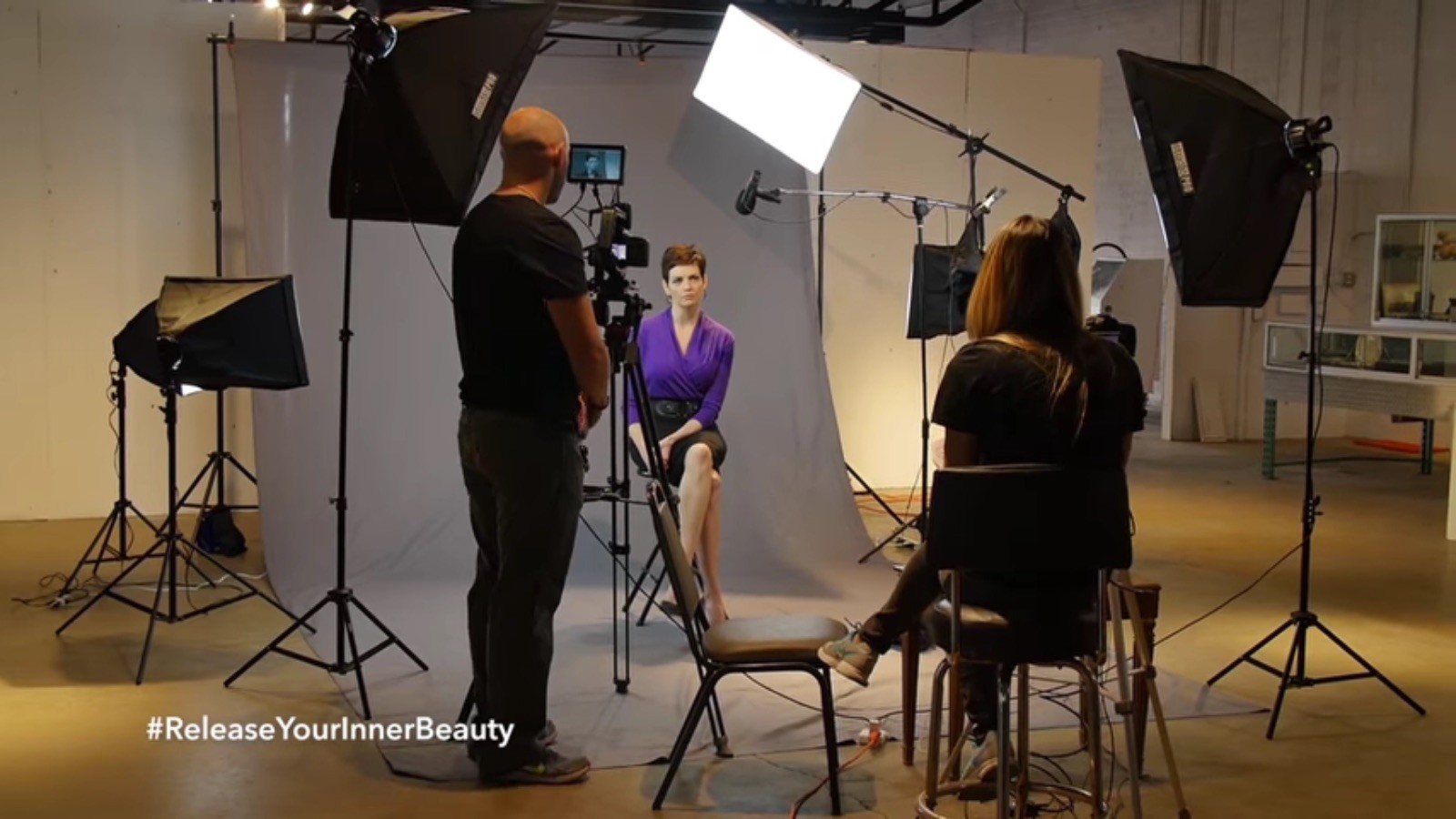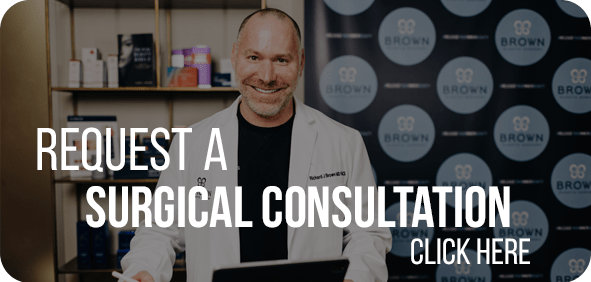WHY WE STARTED #RELEASEYOURINNERBEAUTY
Everybody is beautiful. That’s something we believe down to the core of our beings here at the offices of Scottsdale board-certified plastic surgeon Dr. Richard J. Brown. Each day we have the pleasure of working with patients who are intelligent, caring, and accomplished. They’re drop-dead gorgeous, both inside and out.
But not everyone sees it that way.
The thing is, you can be perfectly happy with yourself as a person and still feel out of place in your own skin. Just because you are successful and intelligent and have a happy, loving family doesn’t mean you’ll feel beautiful. Sometimes in spite of all your accomplishments, you simply don’t feel whole.
If this rings a bell, you’re not alone. Each year, countless women and men struggle to feel confident in their appearance, and increasingly, they are turning to cosmetic and reconstructive surgeries as a way to regain their confidence. According to a recent study commissioned by RealSelf, more than 90 percent of women aged 18-24 and 85 percent of women aged 55-64 are unhappy with at least one body part. Additionally, one in five women (21 percent) aged 18-64 plans to have plastic surgery to correct the feature in question.
[Tweet “A @RealSelf study shows 90% of young women are unhappy with a body part. #ReleaseYourInnerBeauty”]
These feelings of inadequacy are showing up earlier and earlier. One study found that 19 percent of girls under 18 think they are not pretty, while 40 percent are not sure. Fifty percent said they usually don’t like the way they look in a selfie. Is it any wonder, then, that the number of cosmetic procedures rose across nearly every demographic in 2014, while breast surgeries spiked 30 percent in the past 15 years?
“Interestingly, many women are saying their goal is not necessarily to look younger, but more to look refreshed and reflect how they feel on the inside,” dermatologist Doris Day told The Atlantic in 2013. “People are more up front about wanting to look their best.”
That doesn’t mean the rest of society is as receptive to those who have undergone cosmetic procedures. Unfortunately, those who choose plastic surgery as a way to improve a trouble area often face criticism for the decision. There is a stigma that surrounds plastic surgery. This stigma can make the choice to change your appearance seem shameful. You may even feel as though you are less of a person for having taken steps to attain a body in which you feel comfortable.
Too often, the decision to have a cosmetic procedure is seen as vain and self-absorbed rather than an attempt to feel normal.
“The way we talk about women who get plastic surgery is based on the assumption that caring about our looks and caring about our souls is a zero sum game,” Elissa Strauss wrote last year in Elle. “It’s a logic that suggests that external fakeness is a symptom of internal fakeness, and all we can do when we see a woman who has gone the surgery route is shake our heads in fear and repulsion (and just a smidge of self-righteousness).”
This judgement isn’t reserved merely for cosmetic surgery patients. Less than one-fifth of U.S. women who undergo mastectomies opt for breast reconstruction, according to Forbes, due in large part to society’s negative perception of plastic surgery.
“People put their perception of reconstructive plastic surgery into the same boat that they put their perception of elective or cosmetic surgery,” plastic surgeon Dr. Melinda Musgrave told Forbes. “Most breast cancer survivors don’t want to be associated with that mindset, and that’s a huge concern.”
Perhaps an even bigger issue at hand is the fact that these patients often feel undeserving of reconstructive surgery.
“A lot of women think of reconstructive surgery as total disfigurement — people who need facial transplants,” Dr. Musgrave told Forbes. “In comparison, a breast, which is hidden, might seem to her as so much less than that.”
[Tweet “Most women think #reconstructivesurgery is only for severe injuries. #ReleaseYourInnerBeauty”]
More often than not, it’s a feeling of otherness and lack of confidence, rather than self-absorption, that drives someone to seek reconstructive or cosmetic surgery — something which studies have shown to be highly effective in building self-confidence. According to one study, “Compared to those who had chosen not to have plastic surgery, the patients [who did have surgery] felt healthier, were less anxious, had developed more self-esteem, and found the improved body feature in particular, but also their body as a whole, more attractive.”
There are many different reasons that someone may choose to have plastic surgery, but each carries the underlying desire to simply feel comfortable in their own skin.
That’s the message we convey to each of our patients here at the office of board-certified plastic surgeon Dr. Richard J. Brown. We are fortunate to see firsthand the transformative effect that plastic surgery can have for individuals who have struggled for years just to feel confident in the way they look, and we want everyone to understand as much as we do how freeing this can be.
In the spirit of being comfortable in your own skin, we are happy to introduce our #ReleaseYourInnerBeauty campaign to encourage acceptance of cosmetic and reconstructive procedures and empower people to live confidently.
The video features real patients who sought Dr. Brown’s help to feel confident and comfortable in their own skin. These patients trusted Dr. Brown for various plastic surgery procedures, and the video shares the powerful “why” behind their surgeries.
In one clip, a woman talks about her decision to have breast reconstruction surgery with tears in her eyes. “At the end of the day, you just want to feel whole,” she explains. “You just want to look normal. You don’t want people to stare at you.”
[Tweet “”At the end of the day, you just want to feel whole … look normal.” #ReleaseYourInnerBeauty”]
Another woman shares her desire to fit in with her family. “Everybody in my family is very large-breasted or have big butts. I always kind of felt like the odd man out a little bit,” she says. “I wanted to be more womanly.”
So many times we hear that the stigma of plastic surgery procedures keeps a patient from correcting a problem area, but the benefits to be felt from helping your exterior match your interior beauty are worthwhile.
“If it’s going to make you feel better, do it,” a male patient urges in the video.
Watch the full video below.
Have a similar story? We encourage you to share your moments of personal triumph through plastic surgery or cosmetic procedures by using the hashtag #ReleaseYourInnerBeauty.
How will you #ReleaseYourInnerBeauty? Give us a call at 480-568-3804 to get started.




